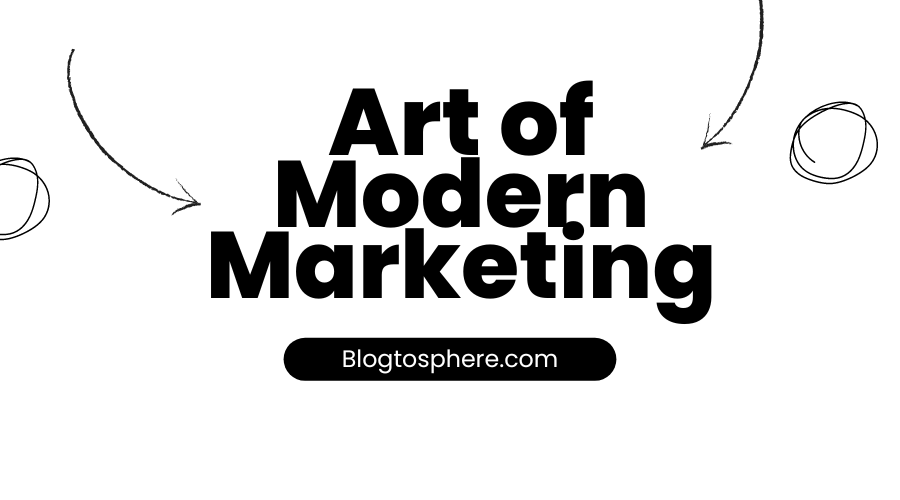In today’s fast-paced and ever-evolving digital landscape, traditional marketing strategies alone are no longer sufficient to achieve success. The rise of the internet, social media, and advanced technologies has fundamentally changed the way businesses connect with their target audience. To thrive in this digital age, marketers must embrace new approaches and master the art of modern marketing. In this article, we will explore some key strategies for success in the digital age.
- Embrace Data-Driven Decision Making: Data is the fuel that powers modern marketing. Collecting and analyzing data allows marketers to gain valuable insights into customer behavior, preferences, and trends. By leveraging tools like web analytics, social media monitoring, and customer relationship management (CRM) systems, businesses can make informed decisions about their marketing strategies. Data-driven marketing enables targeted campaigns, personalized messaging, and better understanding of customer needs.
- Build a Strong Online Presence: In the digital age, having a strong online presence is crucial for success. Start by creating a well-designed, user-friendly website that effectively communicates your brand’s value proposition. Optimize your website for search engines to ensure it ranks high in relevant search results. Leverage content marketing by creating and sharing valuable, relevant, and engaging content through blogs, videos, and social media platforms. Engage with your audience regularly and foster a sense of community around your brand.
- Leverage Social Media: Social media platforms have become powerful marketing tools, providing businesses with the opportunity to reach and engage with a vast audience. Identify the social media platforms that are most relevant to your target audience and establish a strong presence on those platforms. Develop a well-defined social media strategy, including content creation, community management, and paid advertising. Use social listening to monitor conversations about your brand and industry, and respond promptly to customer inquiries or feedback.
- Embrace Influencer Marketing: Influencer marketing has gained significant traction in recent years, allowing businesses to leverage the reach and influence of popular individuals on social media. Identify influencers who align with your brand and target audience, and collaborate with them to promote your products or services. Influencers can help you reach a wider audience, build credibility, and drive conversions. However, it’s crucial to choose influencers carefully and ensure their values align with your brand’s.
- Personalization and Customer Segmentation: Customers today expect personalized experiences from brands. By segmenting your audience based on demographics, behavior, or preferences, you can tailor your marketing efforts to specific groups, delivering more relevant and personalized messages. Leverage marketing automation tools to send targeted emails, recommend personalized product recommendations, or create customized landing pages. The more personalized your marketing efforts are, the better chance you have of capturing and retaining customers.
- Invest in Video Marketing: Video has become a dominant form of content consumption in the digital age. Incorporate video marketing into your strategy to capture your audience’s attention and deliver engaging storytelling. Create informative and entertaining videos that showcase your products, explain complex concepts, or share customer success stories. Platforms like YouTube, Instagram, and TikTok offer excellent opportunities to reach and engage with your audience through video content.
- Embrace Mobile Marketing: Mobile devices have become an integral part of people’s lives, presenting a significant opportunity for marketers. Optimize your website and marketing materials for mobile devices to ensure a seamless user experience. Utilize mobile advertising platforms like in-app ads, mobile search ads, or mobile video ads to reach your audience effectively. Additionally, consider leveraging mobile messaging apps to connect with customers through chatbots, personalized messaging, and notifications.
- Continuously Adapt and Innovate: The digital landscape is constantly evolving, so it’s essential to stay up-to-date with the latest trends and technologies. Monitor industry news, attend
- industry conferences and webinars, and engage with online communities to stay informed about emerging marketing strategies and technologies. Be open to experimenting with new approaches and platforms to stay ahead of the competition. Continuously test and optimize your marketing campaigns based on data and feedback. The key to success in the digital age is agility and the willingness to adapt to changing consumer behaviors and preferences.
- Utilize Marketing Automation: Marketing automation tools can streamline your marketing efforts and improve efficiency. Automate repetitive tasks such as email marketing, social media posting, lead nurturing, and customer segmentation. By implementing marketing automation, you can save time, deliver consistent messaging, and nurture leads at scale. However, it’s important to maintain a human touch and ensure that automated messages still feel personalized and relevant to the recipient.
- Foster Customer Engagement and Advocacy: In the digital age, building strong relationships with customers is crucial. Encourage customer engagement by actively responding to their comments, reviews, and inquiries on social media and review platforms. Develop loyalty programs, referral programs, or exclusive customer communities to foster a sense of belonging and reward loyal customers. Satisfied customers can become brand advocates, spreading positive word-of-mouth and driving new business.
- Measure and Analyze Results: To gauge the effectiveness of your marketing efforts, it’s essential to measure and analyze key metrics. Set clear goals and establish relevant key performance indicators (KPIs) to track your progress. Utilize tools like Google Analytics, social media analytics, and CRM systems to monitor the performance of your campaigns. Analyze the data to identify what’s working well and what can be improved. Use the insights to refine your strategies and make data-driven decisions.
- Stay Ethical and Transparent: In the digital age, consumers value transparency and ethical business practices. Build trust by being transparent about your products, pricing, and data collection practices. Protect customer data and adhere to privacy regulations. Be authentic in your marketing communications and avoid misleading or deceptive tactics. By maintaining high ethical standards, you can build long-lasting relationships with customers and create a positive brand reputation.
In conclusion, mastering the art of modern marketing in the digital age requires a shift in mindset and the adoption of new strategies. Embrace data-driven decision making, build a strong online presence, leverage social media and influencer marketing, personalize your messaging, invest in video and mobile marketing, and continuously adapt to changing trends. Foster customer engagement and advocacy, measure your results, and uphold ethical practices. By implementing these strategies, businesses can thrive in the digital age and connect with their target audience in meaningful ways.

